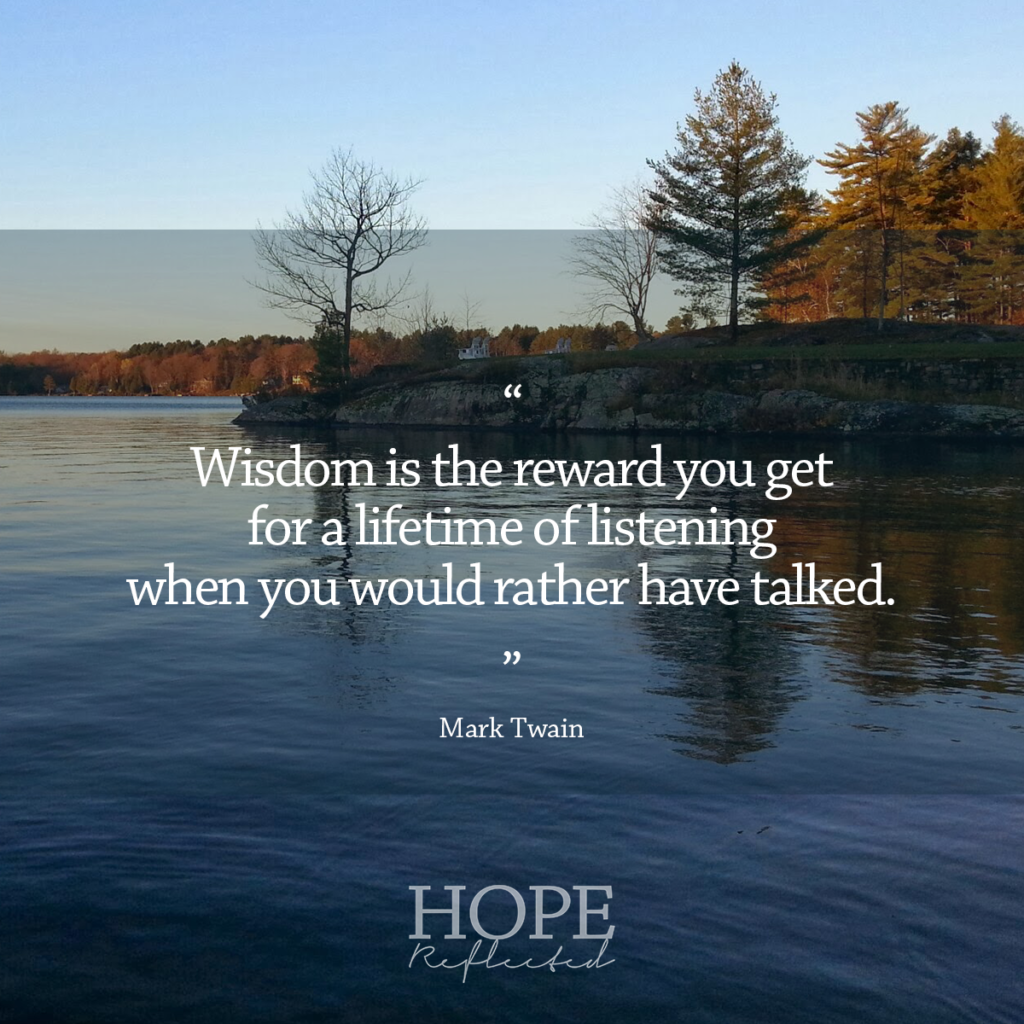Are you listening?
Written by H, Posted in Christian Living, Published Work

Listening is important
We all have a desire to be heard, the problem is not many of us listen. From birth, even without words, babies try to communicate with others – because they long to be heard. Mothers typically recognize the cry of their child because they’ve spent so much time listening.
We also see this with animals. Dickens has an interesting way of communicating, using his front paws to reach out and touch us when he wants something. He also barks incessantly at any threat outside our home. We’ve become so attuned listening to his bark that we understand when he sees a squirrel, cat, or a human.
Listening requires action
Listening requires action on our part, which we tend to forget. We get caught up thinking that action comes when we speak, which is why many of us have a habit of interrupting. Rather than listening to what others have to say, we start planning a smart response, readying our reaction rather than hearing what others are saying.
One benefit to listening is that we become more receptive. After a conversation with Nathan, King David had a responsive heart to hear the Lord. In 2 Samuel 7, we understand the blessing that comes with listening, as when we truly listen, we grow closer to God. “Wherefore thou art great, O LORD God:” David proclaimed, “for there is none like thee, neither is there any God beside thee, according to all that we have heard with our ears.” (v. 22). Listening – not just laying out our prayer lists – is one of the most important aspects of our relationship with God.
Another blessing of listening is that it helps us to learn. When Paul and Silas preached the Gospel to the Berean Jews, we read in Acts 17:11, “that they received the word with all readiness of mind, and searched the scriptures daily, whether those things were so.” Mark Twain once said that, “Wisdom is the reward you get for a lifetime of listening when you would rather have talked.” We cannot learn unless we listen.
“Wisdom is the reward you get for a lifetime of listening when you would rather have talked.”
Mark Twaint
Listening also helps us to deal with hard truths and become discerning
We are all guilty of avoiding topics that make us uncomfortable. Perhaps we feel less informed than the person we’re speaking with, but more often than not, we have a hard time accepting the truth – especially when it’s not convenient. A great example of this is found in John 6. After feeding the five thousand, Jesus was preaching in Capernaum, and He went against the grain of the popular teachers of the day by sharing the truth: That salvation is found in Him alone – not in how much money we give away, or how frequently we go to church, or which family we belong to. This made a lot of people uncomfortable – it still does today – to the point that some of His followers left Him. “Many therefore of his disciples, when they had heard this, said, This is an hard saying; who can hear it?” (v. 60). Until we start listening, we will struggle to deal with the truth.
God speaks to those who listen.




![False friends or counterfeit kindness; whatever you want to call it, the world is filled with people who will say one thing to your face and then another behind your back; people who will woo you in order to get something from you.
It’s sad, but it’s true.
The Bible provides us with examples from Joab to Judas, and yet, we’re surprised when we find ourselves deceived and hurt by someone else.
So what are some of the hallmarks of a true friend?
You can read more about this on hopereflected.com [Link in profile]
.
.
.
#friends #friendship #kindness #counterfeitkindness #hurt #proverbs #truefriends #hopereflected #blog #blogpost](https://www.hopereflected.com/wp-content/plugins/instagram-feed/img/placeholder.png)